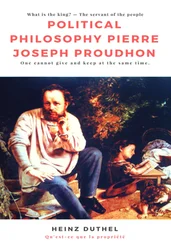1 Cover
2 Dedication Dedication In Memory of Isaac Kramnick
3 Title Page American Political Thought An Invitation KEN I. KERSCH polity
4 Copyright Copyright © Ken Kersch 2021 The right of Ken Kersch to be identified as Author of this Work has been asserted in accordance with the UK Copyright, Designs and Patents Act 1988. First published in 2021 by Polity Press Polity Press 65 Bridge Street Cambridge CB2 1UR, UK Polity Press 101 Station Landing Suite 300 Medford, MA 02155, USA All rights reserved. Except for the quotation of short passages for the purpose of criticism and review, no part of this publication may be reproduced, stored in a retrieval system or transmitted, in any form or by any means, electronic, mechanical, photocopying, recording or otherwise, without the prior permission of the publisher. ISBN-13: 978-1-5095-3035-9 A catalogue record for this book is available from the British Library. Library of Congress Cataloging-in-Publication Data Names: Kersch, Kenneth Ira, 1964- author. Title: American political thought : an invitation / Ken I. Kersch. Description: Cambridge, UK ; Medford, MA : Polity Press, 2021. | Includes bibliographical references and index. | Summary: “The best one-volume introduction to American Political Thought available”-- Provided by publisher. Identifiers: LCCN 2020027944 (print) | LCCN 2020027945 (ebook) | ISBN 9781509530328 (hardback) | ISBN 9781509530335 (paperback) | ISBN 9781509530359 (epub) Subjects: LCSH: United States--Politics and government--Philosophy. Classification: LCC JK31 .K469 2021 (print) | LCC JK31 (ebook) | DDC 320.0973--dc23 LC record available at https://lccn.loc.gov/2020027944 LC ebook record available at https://lccn.loc.gov/2020027945 The publisher has used its best endeavours to ensure that the URLs for external websites referred to in this book are correct and active at the time of going to press. However, the publisher has no responsibility for the websites and can make no guarantee that a site will remain live or that the content is or will remain appropriate. Every effort has been made to trace all copyright holders, but if any have been overlooked the publisher will be pleased to include any necessary credits in any subsequent reprint or edition. For further information on Polity, visit our website: politybooks.com
5 Acknowledgments Acknowledgments In thinking about and writing this book, I am grateful for the assistance of my Boston College students, both the many with whom I have explored this subject in my classes, and the few who provided more extensive critiques, suggestions, and research assistance. Of the latter, I am especially grateful to Steven LeGere, Aaron Pezzullo, and, thankfully, once again, Ryan Towey. Kaylie Ramirez and Caleb Tansey from BC provided more targeted advice, as did Chris Bartlett, Richard Bensel, and Ted Holsten. My conversations with Clem Fatovic on this topic have been so numerous that it is hard for me to know where his understandings of key points and issues end and my own begin. Anyone who has studied this subject with Isaac Kramnick at Cornell, as Clem and I did together, will know, as casual readers might not, that Isaac’s influence on this book is pervasive. It is also hard for me to imagine having learned whatever I have about this subject without thinking of my initial conversations at Cornell with Ted Lowi, Richard Bensel, Jeremy Rabkin, and Elizabeth Sanders. I have learned an immense amount about this subject since, of course, especially from Keith Whittington, Mark Graber, and Carol Nackenoff, but from many others as well. Boston College provided generous financial assistance. I am immensely grateful to George Owers at Polity, both for soliciting me to write a book on this topic – which I had long been pondering – and for being such a knowledgeable, engaged, and inspiring editor. The anonymous outside reviewers George assembled first for the book proposal and then for the completed manuscript provided extraordinarily penetrating critiques, sage advice, and essential corrections that significantly improved the book. I also would like to thank Julia Davies at Polity, whose expertise and attentiveness have been indispensable to whatever successes this book may have. It was with great sadness that I learned of Isaac Kramnick’s death as I was completing this manuscript. But it is with a resolute happiness that I dedicate it to his memory.
6 1 Themes and Frameworks in American Political Thought The Traditional Framing: Lockean Liberalism, Civic Republicanism, and the Liberal–Republican Debate Complications and Refinements: Other Liberalisms, Other Republicanisms, and Other Thought Traditions Theories Positing the Inadequacy of the Traditional Frameworks and Proposing Alternatives Stories About America Conclusion Questions Notes
7 2 Settlement, the Road to Revolution, the Founding, and the Early RepublicThe Theological Dimensions of Colonial American Thought Race and Indigeneity during the Settlement and the Road to Revolution The American Revolution and the Founding Hamiltonian and Jeffersonian Visions Conclusion Questions Notes
8 3 Antebellum Political Thought Jacksonian Democracy The Whig Vision and “the American System” Majority Rule and Minority Rights The Sovereign Individual Anti-Materialism and Nature The Call of Moral and Social Reform An “Empire of Liberty”? Labor: Work and Slavery Conclusion Questions Notes
9 4 Secession/Civil War/Reconstruction Race, Slavery, and Natural Rights Slavery and Union A New Birth of Freedom? Equality and Union after Slavery Conclusion Questions Notes
10 5 Industrial Capitalism, Reformism, and the New American State Restraining Government: The Philosophy of Laissez-Faire Conservative Critics of Industrial Capitalism and Liberal Modernity Reformist and Revolutionary Critics of Industrial Capitalism: Ideas Ideas in Action From Pragmatism to Progressivism Pragmatism in Politics and Government The New Pluralism: Ethnicity, Nationality, and Race Sex and Gender Conclusion Questions Notes
11 6 The New Deal Liberal Order: Collapse, Culmination, or “Great Exception”? The New Deal The Fate of the Individual in a Mass Polity Who Governs? The Liberal Consensus Outliers in Franklin Roosevelt’s America: The “Radical Right,” Marxian Left, and Marginalized African-Americans Rumbling Undercurrents Conclusion Questions Notes
12 7 Radical Stirrings, Civil Rights, the Contentious 1960s, and the Rise of Modern Conservatism Mass Conformity: The Diagnosis and the Rebels Postwar Conservatism’s Political Rise Conservative Political Thought Civil Rights Resistance Black Nationalism The New Left The Full Flowering: The Late 1960s Counterculture Conclusion Questions Notes
13 8 The Identity and Post-Materialist Left, the New Right, and Third Way Liberalism Sex and Gender The Intervention of Feminist Women of Color “Gay Liberation” and the Politics of LGBTQ + Identity Racial and Ethnic Identity and Pride: the Chicano and American Indian Movements, and Beyond Ecology and Environment The New Right Third Way (Neo)Liberalism Conclusion Questions Notes
14 9 Conclusion Boundaries, Categories, and Intersectionality The Persisting Problem of the Color Line Contemporary Conservatism Contemporary Liberalism Capitalism, Socialism, and Neoliberalism The Resurgent American Left Conclusion: The Futures of American Political Thought Questions Notes
15 Index
16 End User License Agreement
1 Cover
2 Table of Contents
3 Dedication
4 Title Page
5 Copyright
6 Acknowledgments
7 Begin Reading
8 Index
9 End User License Agreement
1 ii
2 iii
3 iv
4 vi
5 vii
Читать дальше












